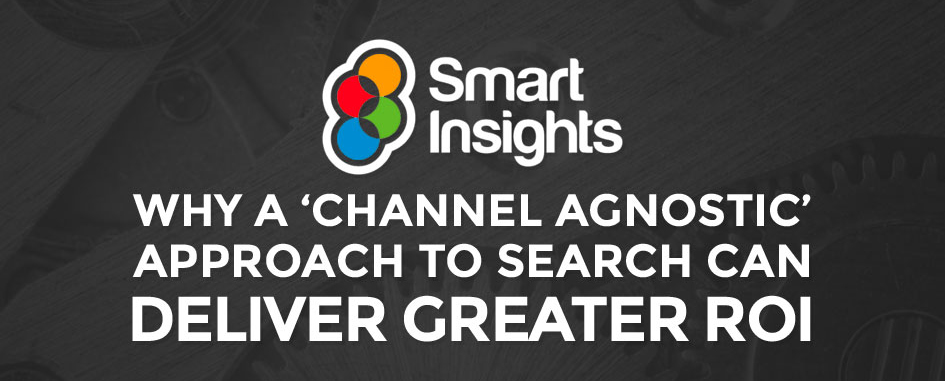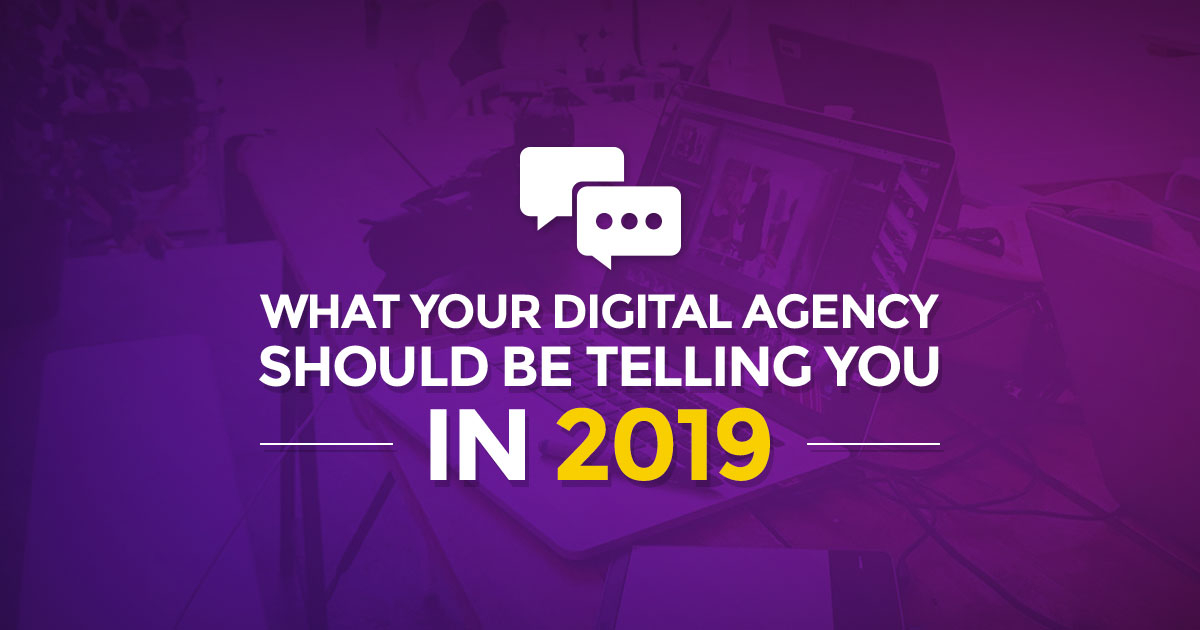
It’s an exciting time to be involved in search. Over the course of the last couple of years, we’ve seen something of a sea change in the way in which people search for information, brands and products, and these changing trends and behaviours are really coming to the fore when it comes to search marketing strategy in 2019.
These changing consumer trends and behaviours present a host of opportunities for brands to engage with their audiences. The old, linear concept of the ‘customer journey’ is becoming less and less applicable, and what we’re seeing instead consumers jumping around a much less linear journey that spans multiple channels and devices.
That changing behaviour has led to a lot of inefficiency in the search market, and much of that is created by the mind-set that many brands and agencies still have when it comes to keeping paid and organic search as two separate, often competing, channels.
What we often see when we dig deeper into the search strategy of many brands is that they have a tendency to dedicate a disproportionate level of investment into paid search, compared to organic.
To a degree, this is understandable. Paid search is easier to understand, it’s easy to measure the level of investment in and the level of return out, and paid search makes it easier for brands, particularly those with a weak organic presence, to enter the market. We therefore see many marketers favouring paid because it provides those easy-to-understand numbers that they can take to the boardroom.
That doesn’t mean to say that paid search doesn’t have value – it clearly does – but that disproportionate focus on paid search can harm that drive for efficiency. What we want to be doing is following the data to find the best course of action, to drive the right traffic and to reach the right audiences as efficiently as possible be that through paid or organic. In some cases, that will mean increasing spend across both channels on an efficient time-decay model, whilst other cases it may mean dialling down one channel and reinvesting in the other.
Communication and collaboration

The culture that you share and foster with your chosen agencies is a very important element to creating an environment where paid and organic search unites around the right common goals – which is generating the greatest return as efficiently as possible for the brand. Every stakeholder needs to understand what you are trying to achieve, and the strategy for achieving it.
Having a unified strategy to paid search and search engine optimisation does not necessarily mean having one agency that does both paid and organic (although in some cases it may make sense to do that). What matters is that whoever is responsible for each respective element is on the same page. They need to understand the strategy, they need to understand the role that each channel plays in the customer journey, and they need to willing and able to communicate with each other to share data, ideas and conclusions.
Thankfully, this culture is becoming more common. We are finding more and more clients are arranging all agency meetings and insisting on data sharing, but it shouldn’t be incumbent on the client to drive this – all of your agencies should be open to this model and culture of collaboration. If one party seems overly protecting of their data, it is going to make it much more difficult to implement this kind of strategic direction.
You’re probably encouraging the wrong behaviour from your agencies

Another factor that will make it more difficult for brands to foster this sort of culture is the way in which they traditionally incentivise their agencies – and how that may be encouraging behaviours that are actually contrary to what is in the client’s own interests.
Organic search marketing agencies tend paid on a flat-fee retainer basis (usually based on hours of work), whereas agencies managing paid campaigns tend to be remunerated on a management fee model that is based on a percentage of spend.
In this context, you can start to see how these models can conflict with trying to create a culture of a more unified way of working between your agencies. If you’re paying agencies based on a model based on the percentage of ad spend, it is in their financial interest to resist attempts to divert that spend into other channels.
Carefully consider how you can incentivise your respective agencies in the same way, in a way that encourages the right behaviours and in a way that doesn’t potentially encourage inefficiency.
Webinar: Why A ‘Channel Agnostic’ Approach To Search Can Deliver Greater ROI

This practical webinar, in association with Smart Insights, will show you how you can create a ‘channel agnostic’ approach to digital to help you drive efficiency and generate a greater return on investment by:
- Revisiting your agency relationships;
- Reviewing your use of targeting and data; and
- Considering the most effective way to report on success
Who doesn’t want more for less?
When and where?
Wednesday 30th January 2019 10-10.45am (GMT)
Register for free to watch the webinar live or on demand – https://www.brighttalk.com/webcast/8551/345419
Meet our presenter
Mike McDougall, Organic Search Director, Stickyeyes

With a decade and a half of experience in search, Mike is uniquely placed to help our current crop of clients spread their wings in search. As Organic Search Director, he’s keen to ensure that what we deliver is absolutely best in class.
He’s previously overseen continent-spanning accounts and built the foundations for long-term relationships with a variety of our existing clients.
A more integrated, single search marketing strategy

The decisions that you and your agencies make on where to deploy paid aggressively, and where to rely more on organic activity, should be heavily data-driven. You should already have your audience data at this point, and you need to supplement this with data and insight about your brand in the context of the market and its competitors. How is the brand positioned to search your target audiences in search, and what are your key priorities?
This data helps you to understand not only your audiences and their behaviour, but also to what extent each channel is going to be effective. If you are looking for short-term success, there is little point focusing on organic search for keywords that you are unlikely to rank for. There is also little value in an aggressive paid search strategy on keywords that are unlikely to convert, or lead to conversions with low margin or customer lifetime value.
In this process, you need to consider:
- The keywords with the greatest short-to-medium term potential to grow traffic.
- The search keywords with the lowest barriers to traffic driving performance.
- The keywords which you are likely to prioritise based on your wider business goals.
- Your budget and current position in the market.
Having identified your keyword clusters, categorise these into clusters based on factors such as:
- The value of those keywords in terms of both traffic potential and commercial value.
- How competitive those keywords are in organic search.
- How likely it is that the brand can rank for those keywords in the short-medium term, based on the competitive landscape level of investment necessary to rank.
- How competitive the paid search market is for those keywords.
Using this approach, you can start to drive those all-important efficiencies and start to generate more from your investment in search.
What is clear is that as the search landscape becomes more and more diverse and fragmented, the old debates about “SEO vs PPC” are no longer relevant. They are, in their essence, just tactics designed to attract an audience.
What is your agency telling you in 2019?

In the fourth edition of our annual guide we take you through the key developments in search and ecommerce, including key Google algorithm updates and changing trends in consumer behaviour – and explain how you need to respond.
If you’re responsible for developing and implementing your brands online strategy or for managing agency relationships then this 50-page guide is not to be missed.
Download this easy-to-read guide and discover:
- What you need to do to ensure your brand remains visible online
- How you can use paid and organic search together to get more out of your budget, resources and agencies
- How your strategy needs to change if you work in e-commerce or e-retail
- The importance of search intent and how you can make sure your brand is visible throughout the entire customer journey
- Why technical foundations still matter
Download the report by filling in the form now.
